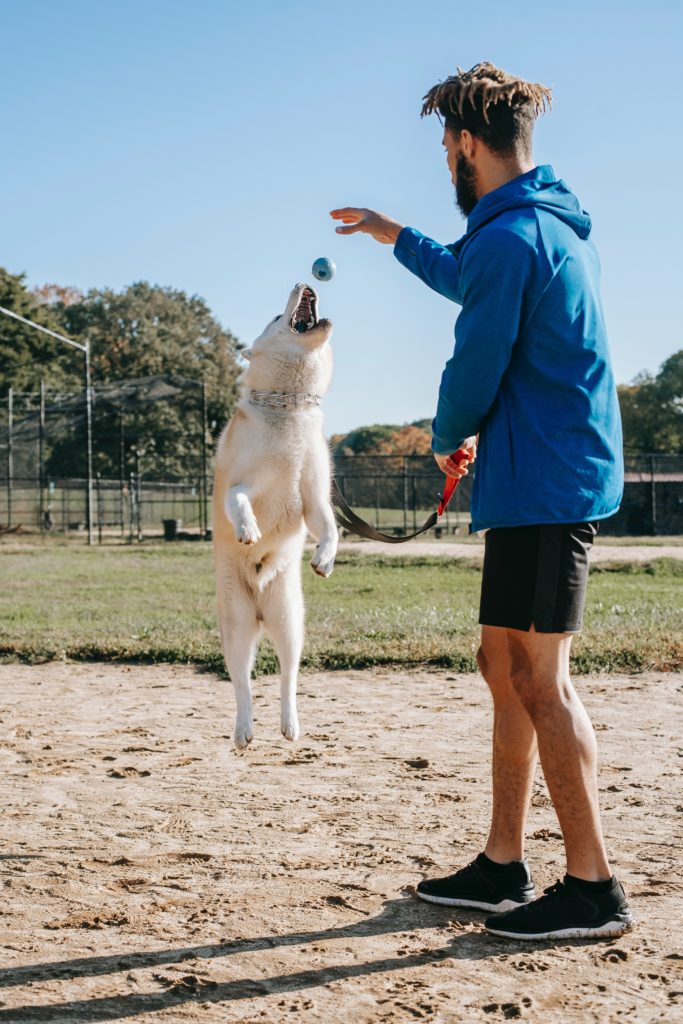

Aggression in a Dog:One of the most prolific dog behaviour problems that I see as a dog behaviourist is aggression. Does your dog bark, lunge, growl, or exhibit any other type of unsociable behaviour at the sight of other dogs or passersby? If so, you are not alone – many dog owners face this problem. But there is no need for you to worry, since it’s natural for a dog to act strange when it confronts unfamiliar beings. However, it is essential to work with your dog, and possibly a dog behaviourist, and teach it how to stay calm and socialise so that you are able to take it out on a walk or to the park without having to worry about it being a risk or nuisance.

You will have to observe your canine carefully and determine how you can get its attention amidst all distractions in the surroundings. As a dog behaviourist we consider this the building block of training your dog, as well as allowing it to recognise you as the pack leader that it can trust. Your ultimate goal is to become the figure your dog looks up for guidance instead of acting on its own.
In my experience as a dog behaviourist in Liverpool, dogs exhibit aggressive behaviour in response to unfolding events. Two main factors of dog aggression are dominance and frustration, which may be due to a myriad of reasons. Generally, when a dog resorts to aggression, it thinks that it is under some sort of threat.
Let me explain this to you with an example: the dog may consider being around strangers a threat to its personal safety, or think that it may not be able to do something it really likes, which results in frustration and a feeling of being dominated. The dog then may use aggression to reduce or control this challenge. In other words, it is a dog’s basic instinct to use aggression if it feels threatened or pushed far enough.

You need to observe your dog closely and work out the circumstances that may be causing your dog to act aggressively. Your next move depends on towards whom or what, or when your dog is aggressive. As a dog behaviourist I have seen dogs being aggressive to just a single context, while there have been others who exhibit aggression in many contexts. For example, if your dog eats bones aggressively, but show normal behaviour when presented with ordinary dog food, the solution to would be simple – don’t give your dog bones to keep it from being aggressive.
While this was a simple situation and can be avoided easily, you may have to talk to a dog behaviourist if the problem is severe or your dog shows aggression in every other event. At Dog Harmony Training, we have experienced dog behaviourists in Liverpool that can help your dog with its aggressive behaviour.
Dog Trainer Thailand
2/4 Moo7 Soi 63 Chaoafa Road Chalong Phuket 83130dogtrainerthailand.com © 2023